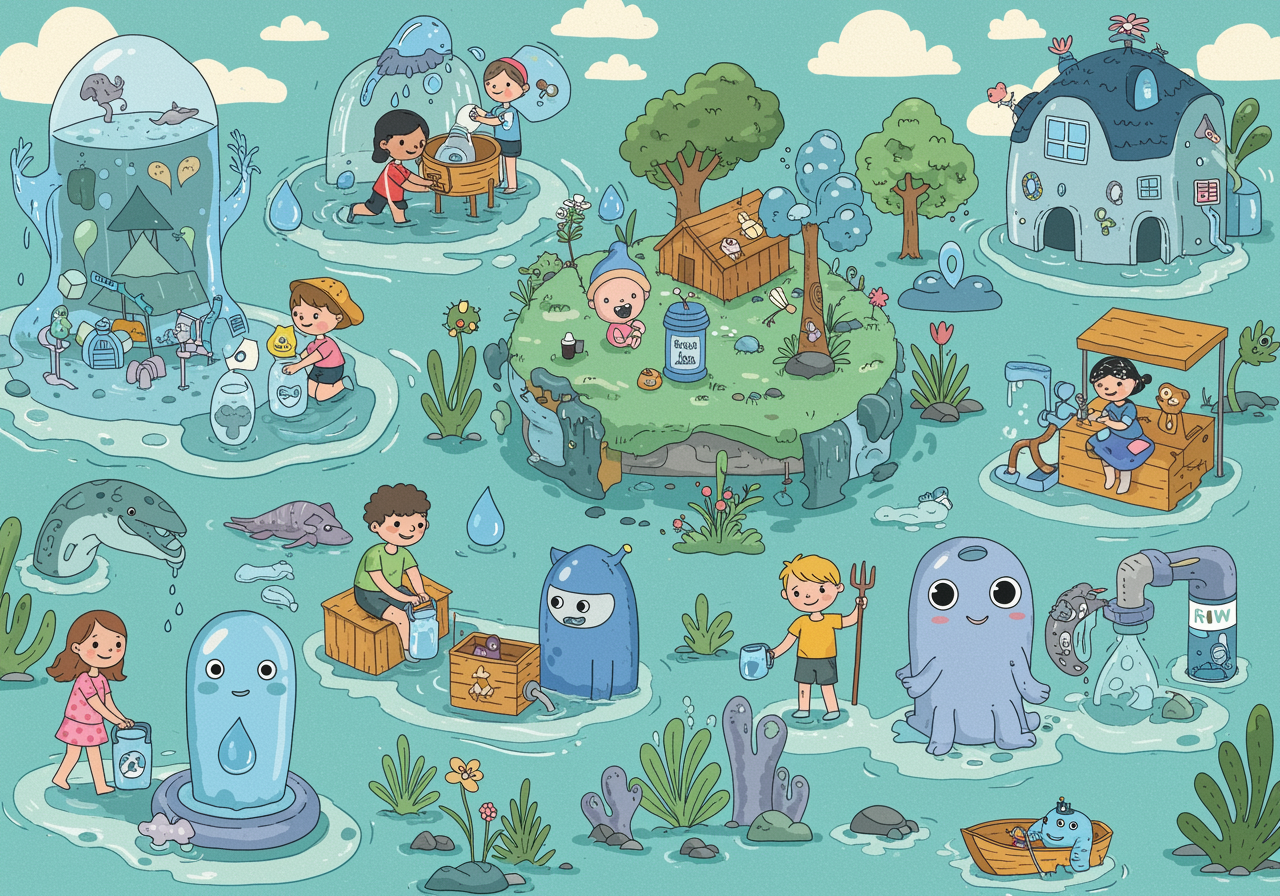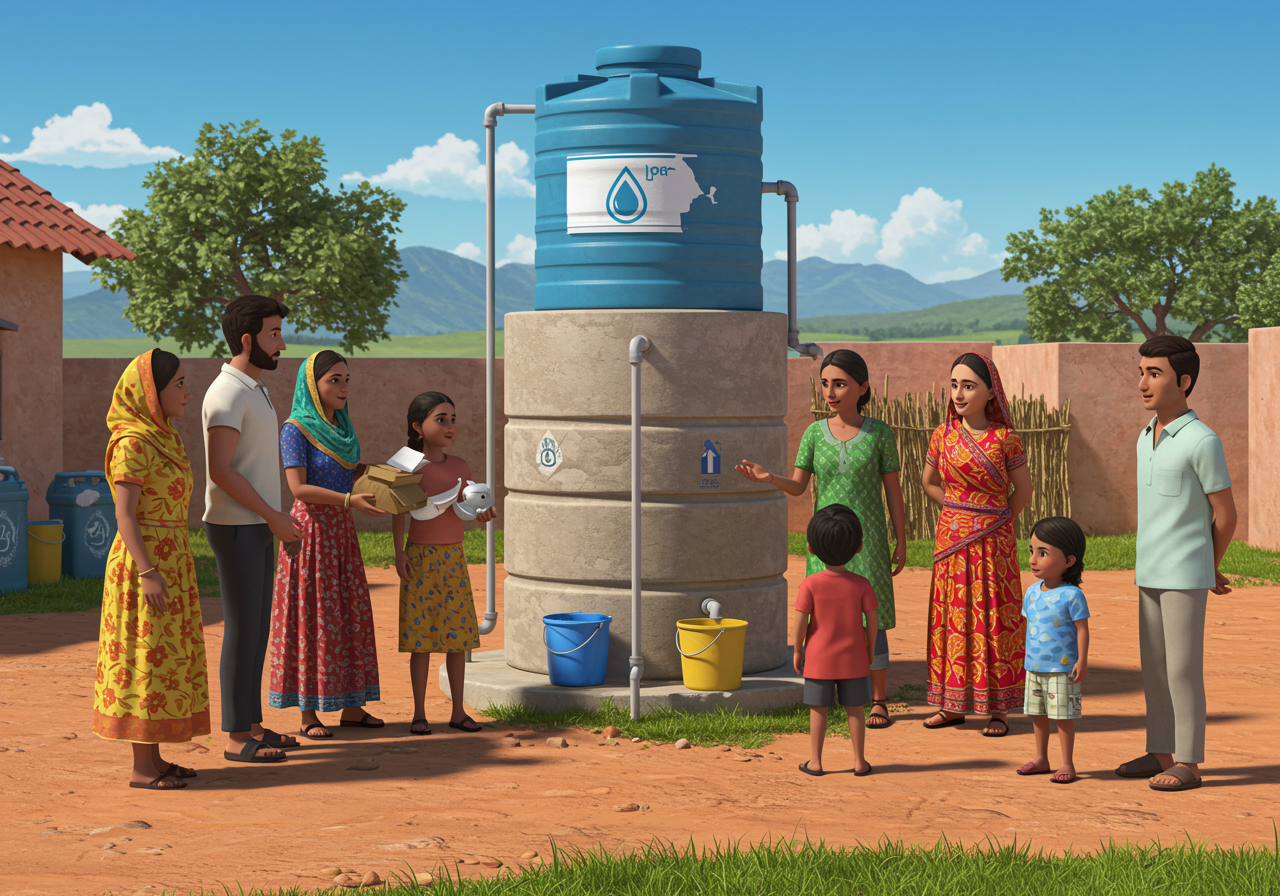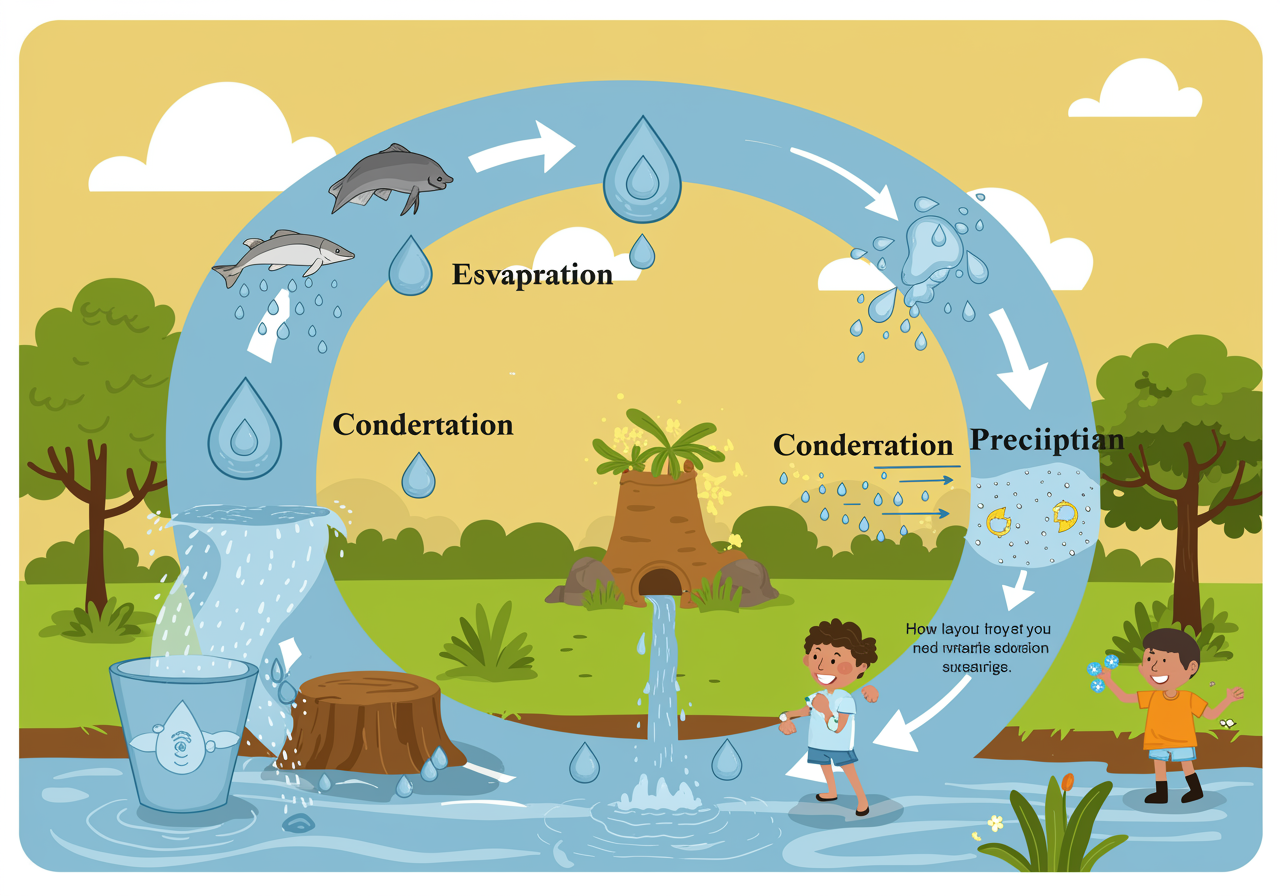The Great Water Mystery: What If Earth’s Freshwater Disappeared?

Discover how we can be water heroes and protect our planet’s most precious resource
Join your child on an eye-opening adventure to understand water scarcity and discover how young people everywhere are becoming water conservation champions.
Overview
Water covers most of our planet, but only 3% is fresh water we can actually use – and most of that is frozen! Think about turning on your faucet every morning: what if nothing came out? This topic helps kids understand one of the biggest challenges facing our world while empowering them to be part of the solution. It's not about scaring them, but showing how their generation can be water heroes through simple, everyday actions.

Understand in 30 Seconds
Get up to speed quickly
- Only 1% is useable: Out of all water on Earth, less than 1% is fresh water we can actually drink, cook with, or use for farming.
- 2 billion people struggle: Right now, 2 billion people around the world don't have clean water at home – that's like every person in North and South America combined.
- Climate makes it worse: Climate change is making some places much drier while causing floods in others, making clean water even harder to find.
- Solutions exist today: Smart technology, conservation habits, and teamwork can solve this problem – and kids are leading the way in many communities.
Real Life Scenario
Situations you can relate to
Imagine your neighborhood is like a giant shared apartment building. Every family shares the same water supply that comes from one big tank on the roof. Now picture that tank getting smaller each day because more families keep moving in, but no one is refilling it fast enough. Some families on the top floors still get plenty of water, while families on lower floors barely get a trickle. What would you do? Would you ration your water use? Help fix leaky pipes? Find new ways to collect rainwater? This is exactly what's happening to our planet's freshwater supply, and just like in our imaginary building, we need everyone working together to solve it.

Role Play
Spark a conversation with “what if” scenarios
What if you were the mayor of a town running out of water?
- Role play: Take turns being the mayor presenting water-saving plans to your family 'city council.' Debate creative solutions like rain collection, fixing leaks, or water recycling programs.
What if you had to survive one week using only 2 gallons of water per day?
- Role play: Plan together how you'd prioritize water use – drinking, cooking, cleaning. Use measuring cups to see how much 2 gallons really is and discuss what you'd do differently.
What if you were an inventor creating the next big water-saving device?
- Role play: Sketch and present your water-saving inventions to each other. Think about shower timers, leak detectors, or rainwater collectors – get creative and silly!
FAQs
Frequently asked questions people want to know
Will we really run out of water completely?
No, Earth will always have water, but clean, usable freshwater is becoming harder to access in many places. It's more about making sure everyone gets their fair share.
Why can't we just clean ocean water to drink?
We can! It's called desalination, but it takes a lot of energy and money. Scientists are working on cheaper, easier ways to do this.
What can kids really do about such a big problem?
Kids are already making huge differences! From fixing leaky school faucets to starting water conservation clubs, young people often come up with the most creative solutions.
Examples in the Wild
See how this works day to day
- Cape Town, South Africa almost became the first major city to run out of water in 2018, but citizens worked together to cut water use by 50% and avoided 'Day Zero.' (BBC News)
- Teenagers in Flint, Michigan created water testing kits and organized community clean-up efforts during their water crisis. (National Geographic Kids)
- Students in California schools have saved millions of gallons by installing smart irrigation systems and low-flow faucets. (EPA WaterSense Program)
- A 13-year-old girl in Kenya invented a water purification system using local materials that now helps her entire village. (UNICEF Youth Reports)
In Summary
What you should know before you start
- Less than 1% of Earth's water is fresh water we can actually use for drinking and daily life
- Climate change and growing populations are making water scarcity a bigger challenge worldwide
- Simple conservation habits like shorter showers and fixing leaks can make a real difference
- Young people around the world are already creating innovative solutions to help their communities
Pro-tip for Parents
You got this!
If your child seems worried about water running out, focus on the solutions and actions they can take rather than the scary 'what-ifs.' Frame it as a puzzle to solve together rather than a crisis to fear. Kids feel empowered when they have concrete actions they can take, like timing their showers or helping you install low-flow fixtures. Remember, this generation will likely solve problems we can't even imagine yet!

Keep an Eye Out For
Find these examples in everyday life
- News stories about cities implementing water conservation programs – great conversation starters about local solutions
- Drought or flooding coverage in your area – opportunities to discuss how weather patterns affect water supply
- School science fair projects about water conservation – inspire your child to get involved or create their own project
Explore Beyond
Look up these related research topics
- How do water treatment plants clean our drinking water?
- Why are wetlands so important for our water cycle?
- How does pollution affect our water supply and what can we do about it?